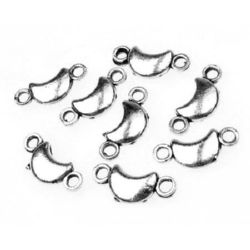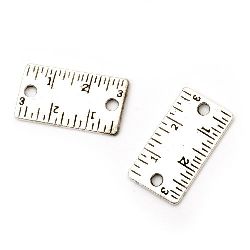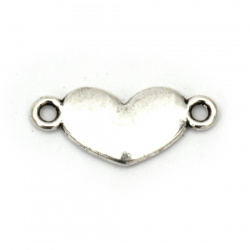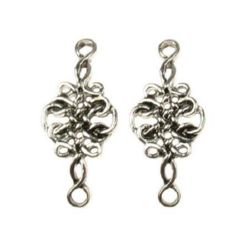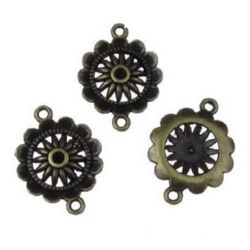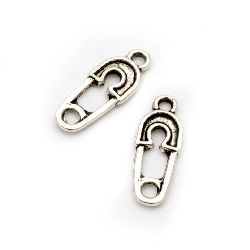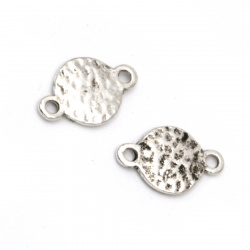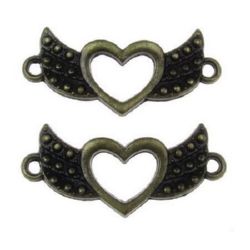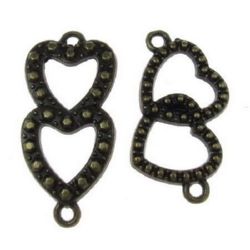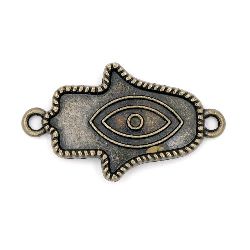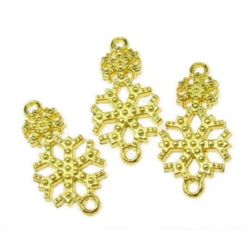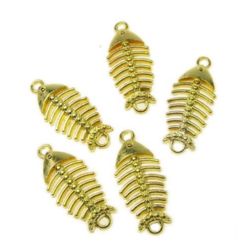Product description
Metal, embossed connector bead in the shape of a fishbone.
Connector elements are a great convenience in the creation of designer jewelry. They serve as a link between individual design elements, while also adding diversity to the design. There is no limit to the imagination, and thus no limit to the application of these beads. Metal combines well with every other material, creating a beautiful visual accent. A large portion of metal beads are in Tibetan style and are made from various iron alloys, often with a certain content of silver. They look like antique silver but in some cases are polished, making them brighter and more shiny. Despite being budget-friendly, these beads look valuable. Every metal, whether precious or not, holds value, not just aesthetically, but also energetically. In the Feng Shui system, metal is one of the five energetic elements crucial for balance in life and home. Metal energy is the energy of intelligence, contraction, healing, and creativity. It helps ideas and concepts to crystallize. Metal ornaments that we wear as jewelry can be a source of concentration and decisiveness in our lives.
The symbolism of the fish - The symbol of the fish is associated with the energy of water, the mysterious, the unknown, philosophy, and silence. In many fairy tales and songs, the fish appears as a bearer of abundance and happiness. It fulfills wishes but is also considered a symbol of justice and receiving according to one’s merits. In Christianity, the fish is connected with the name of Christ.
The product has not been rated.

